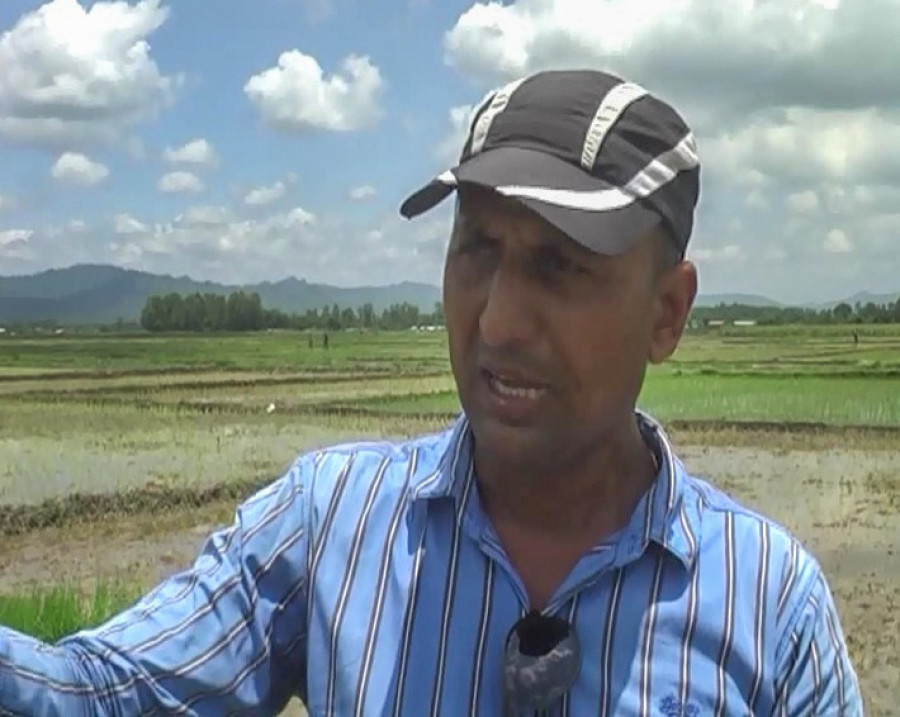National
Fair probe into Paudel’s killing doubtful, advocates say
Supreme Court has directed Sarlahi District Attorney’s Office to register the case after repeated refusals by police.
Binod Ghimire
Nepal Police on June 20, 2019 killed Kumar Paudel, Sarlahi district in-charge of the Communist Party of Nepal led by Netra Bikram Chand. Police claimed he was killed in retaliation as Paudel’s team had attacked them.
The then home minister, Ram Bahadur Thapa, also told the House of Representatives that Paudel was killed when police fire in defence.
However, an investigation by the National Human Rights Commission in October, 2019 concluded that Paudel's death was an act of extra judicial killing committed by the country's law enforcement agency. The commission said that Paudel was killed after being taken into custody and called for action against three police officers under criminal offence.
The commission’s recommendation is yet to be implemented by the government.
The Paudel family had been demanding an investigation even before the constitutional human rights watchdog came out with the report. Paudel's mother Durga Devi had made several attempts to register a case at the Sarlahi District Police and the District Attorney’s Office, but both government bodies turned her away.
After facing continuous refusal, Durga Devi moved the Supreme Court, seeking its order to register the complaint, and the court on Tuesday granted her appeal.
A division bench of Justices Anil Kumar Sinha and Hari Phuyal directed District Attorney Office Sarlahi to register her complaint and inform the court about the development within seven days .
“This incident portrays the difficulty faced by commoners to access justice,” Bed Bhattarai, a former secretary at National Human Rights Commission, told the Post. “The registration of the complaint alone doesn’t ensure the case will be fairly investigated and justice delivered.”
Bhattarai doubts that the Home Ministry and the police, which are reluctant to implement the recommendations of the constitutional commission, will attach priority to the case.
Police are obliged to register complaints as per the Nepal Police Act, 1955 and National Criminal Procedure (Code) Act, 2017. Sections 4 and 5 of the National Criminal Procedure (Code) Act, 2017 hold Nepal Police responsible for registering complaints. Complaints can be filed at district attorney offices or district administration offices if police refuse to take them.
But even if a complaint is registered at a district attorney’s office, it is district police that carry out the investigation. And then there is no guarantee of the district attorney’s office directing the police to investigate the case, or the police investigating the case even if the district attorney’s office has directed them to do so.
Sambhu Sada Musahar, 23, from Sabaila Municipality, Dhanusha died in judicial custody on June 10, 2020. He had been in detention since May 26, 2020 after surrendering himself to the police after he hit two persons, one of whom died, with a tractor.
His family was able to file a complaint at the district attorney’s office only after three days following pressure from human rights activists and local residents who were in protest claiming that Sada had died due to excessive torture.
“The district attorney’s office accepted the complaint following widespread criticism. However, no investigation has been conducted yet,” Bikash Basnet, a programme manager with Advocacy Forum, a non-government organisation working in the field of human rights, told the Post. “We fear Paudel’s case will suffer a similar fate.”
There are several criminal cases from the time of Maoist insurgency that police have refused to entertain. With the transitional justice commissions failing to find out the truths and provide justice to the victims of the decade-long Maoist insurgency, at least 20 victims have reached out to the forum seeking support to register their complaints. However, police have refused to register their complaints.
Basnet said the victims want to challenge the police in the Supreme Court seeking its intervention to register the complaints.
Some human rights advocates have suggested forming an independent body to investigate those cases where the law enforcement agency is involved.
The Supreme Court in December last year had directed the government to form a separate mechanism to investigate the cases of extrajudicial killing. The court directed the formation of a body of experts from different sectors, as an impartial investigation from the police against its own officers was doubtful.
That the Supreme Court had to direct police to register a complaint is unfortunate, said Charan Prasai, a human rights advocate.
“This shows the state's insensitivity towards justice. There is ample room to suspect there won’t be a fair investigation in Paudel’s case. Formation of an independent mechanism as per the court’s ruling is a must,” Prasai told the Post.




 13.12°C Kathmandu
13.12°C Kathmandu














